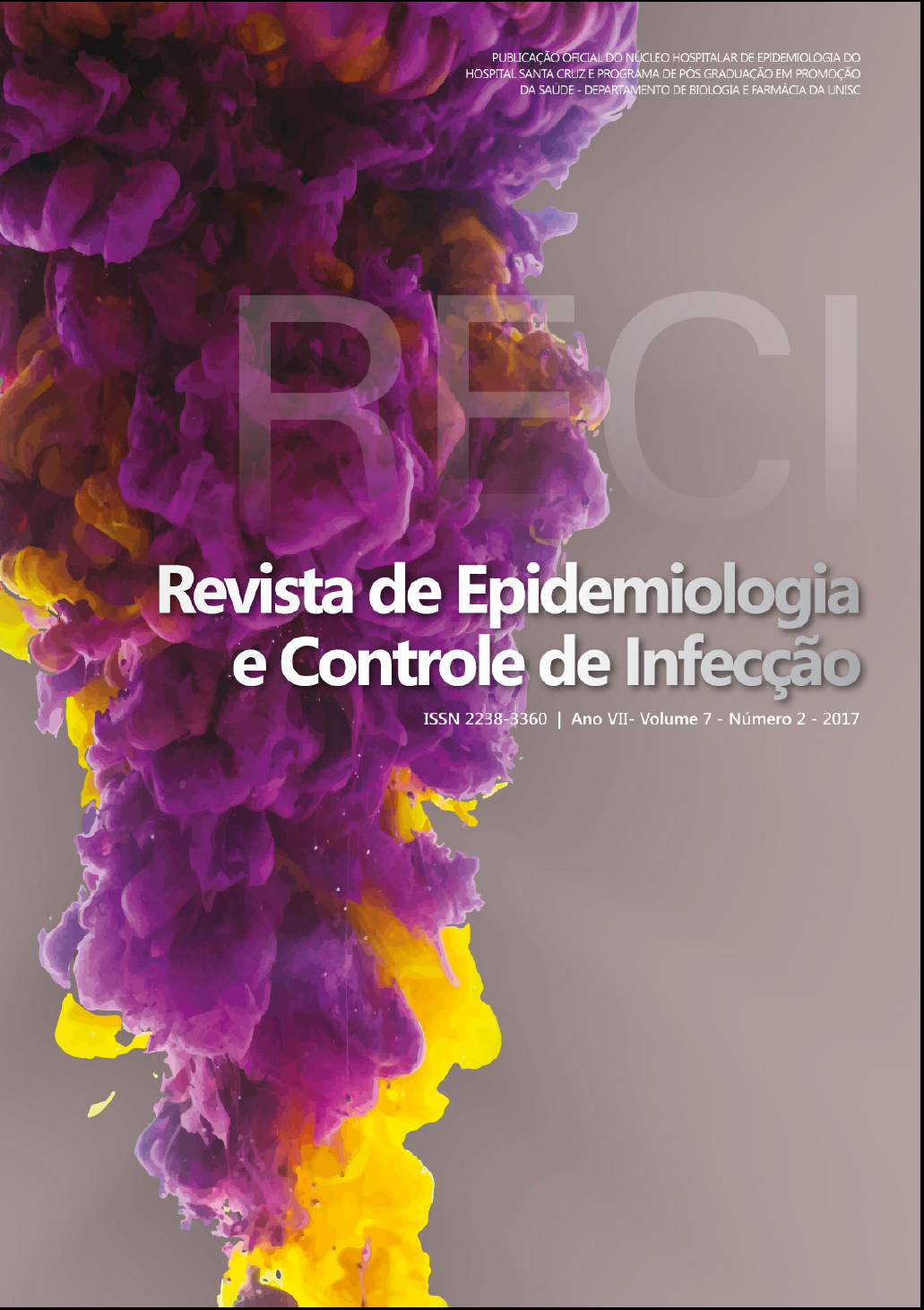Profile of microorganisms associated with colonization and infection in intensive therapy
DOI:
https://doi.org/10.17058/reci.v7i2.8302Abstract
Background and Objectives: Intensive care units are considered the main focus of bacterial resistance in hospital settings because they are the place where most multiresistant bacterial outbreaks take place. Monitoring the microbiological profile of organisms that cause infections is fundamental to support the rational use of antimicrobial agents and implement infection prevention and control measures. The objective of the present study was to assess the profile of sensitivity of microorganisms associated with colonization and infection to antimicrobial agents in an intensive care unit. Methods: The investigation was a cohort study with 2,137 patients admitted to a teaching hospital in Belo Horizonte from 2005 to 2008. Results: A total of 426 (19.9%) microbiological cultures were prepared, and around half this number (263 or 61.7%) were related to colonization by resistant microorganisms. The predominant microorganisms were Acinetobacter baumanni (39%), Pseudomonas aeruginosa (21%) (both resistant to carbapenem antibiotics), Staphylococcus aureus (14%) (resistant to oxacillin), followed by Klebsiella pneumoniae and Escherichia coli. Two hundred and eighty-two patients (13.2%) were diagnosed with hospital infections, with 86 caused by resistant microorganisms. Conclusions: The profile of microorganisms associated with colonization and infection in the studied intensive care unit was similar to that reported in other studies in Brazil and Latin America, with predominance of Gram negative bacilli. The investigation stressed the need to monitor environmental, cleaning and seasonal conditions, such as variations in temperature and humidity, that may favor the reproduction of microorganisms, as one of the infection control measures.Downloads
Downloads
Published
How to Cite
Issue
Section
License
The author must state that the paper is original (has not been published previously), not infringing any copyright or other ownership right involving third parties. Once the paper is submitted, the Journal reserves the right to make normative changes, such as spelling and grammar, in order to maintain the language standard, but respecting the author’s style. The published papers become ownership of RECI, considering that all the opinions expressed by the authors are their responsibility. Because we are an open access journal, we allow free use of articles in educational and scientific applications provided the source is cited under the Creative Commons CC-BY license.


